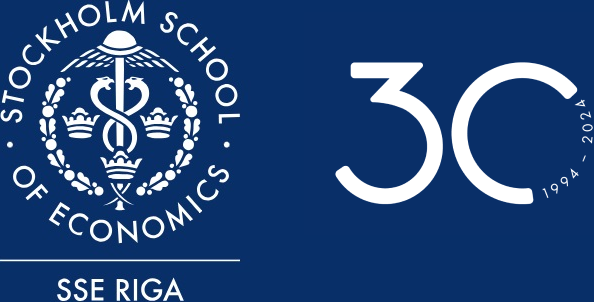European SME Assembly: SSE Riga Professor Arnis Sauka shares his views on how to support small or medium-sized enterprises (SMEs) during the COVID-19 crisis
On 16 and 17 November, Professor Dr Arnis Sauka, Director of the Centre for Sustainable Business at SSE Riga, took part in the European SME Assembly which is held once a year as a major event of European SME Week. This year the Assembly was organized jointly by the European Commission and the German Presidency of the Council of the European Union.
The EU SME Assembly is attended by representatives of the European Commission, EU member states, European and national scientific associations and entrepreneurs, to discuss current EU SME policy issues. The event was held online and took place during European SME week.
The event featured a combination of high-level panels and interviews, expert roundtables, interactive workshops, informative masterclasses, and innovative networking opportunities to help answer the difficult questions facing our community post-COVID.
Dr Sauka presented on the topic “The impact of COVID-19: Challenges and Opportunities for SMEs, Society and Policy in Europe” and provided suggestions on how to support SMEs during the COVID-19 crisis.
Dr Sauka mentioned that amongst top priorities should be support to local SMEs by creating platforms to deliver locally-made goods to local customers as well as support for export growth. Also, support for entrepreneurship within specific groups should not be neglected as some groups, such as women and immigrants are experiencing even more pressure during the crisis.
He also stated that there seems to be potential for developing a circular economy. That is, many goods can find second-time users via “community-based-giving and taking”. This is important in the current context when it is not always easier and cheaper to produce new goods as compared to repairing and redistributing existing goods. More involvement of SMEs in the circular economy would most probably also lead to more of a green economy.
Dr Sauka emphasized that: “During the economic downturn that comes with Covid-19, we can expect an increase in the shadow economy ‒ especially in industries such as construction and tourism, which are major contributors to many EU country GDPs and are also highly dependent on economic cycles. Many SMEs directly or indirectly depend on these industries as suppliers of products or services, which is another reason to support these industries.”
“We also see that in some cases problems are in fact postponed but not solved when support mechanisms are provided to SMEs. For example, SMEs might be offered a tax holiday for 6 or 12 months, but then have to continue paying taxes as usual and ‒ in addition ‒ make postponed payments. Covid-19 might not be over in 12 months so we can expect problems with such an approach,” Dr Sauka pointed out.
During his presentation, Dr. Sauka stressed that results obtained during a survey of key foreign investors in Latvia that was implemented earlier this year clearly show that investors emphasize the need for smart government spending, targeted to reducing unemployment and also requalification of employees. The key emphasis is on “investing” not “spending” to heat up the economy. They also emphasize the need to reduce the administrative burden in order to access available support mechanisms.
According to Dr Sauka, recommendations from the investor survey also include suggestions for reducing the tax burden, especially VAT, but also supporting industries with paying social tax and real estate taxes. Furthermore, investors point to what we actually teach first-year students ‒ that it is cheaper and often also more efficient to invest during an economic downturn, not when the economy improves. Both for both smaller and bigger companies investments in soft and hard infrastructure will most likely also pay off when the crisis is over. Finally, investors suggest targeting available support mechanisms to foster local consumption as well as to support the HORECA sector.

